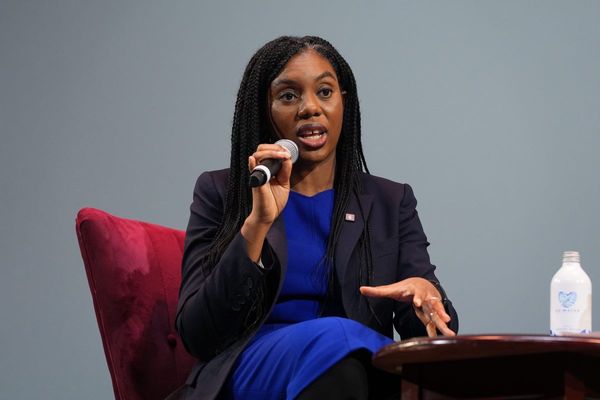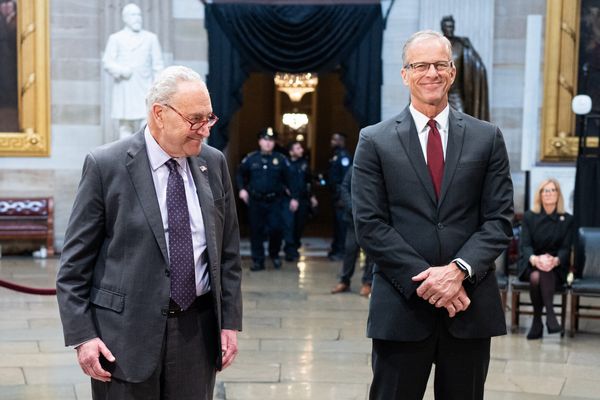
Every industry has its disruptors and influencers, including the property market. Property influencers — propfluencers, if you will — are all over our social media feeds and, with the release of Buying London, our streaming platforms.
With their large followings and whizzy editing skills, it’s a seductive offer for prime property owners looking to sell what is currently a tough market. But is it always a good idea to put videos of your home all over social media in the pursuit of a sale?
Camilla Dell, founder of buying agency Black Brick, has some cautionary tales that may make sellers and buyers think twice.
“If you push your property out on social media, it is out there for the whole world to see,” she tells Homes & property. “We've seen properties that have come on the market, or off market initially, at too high a price. Then sellers have blamed their agents, changed tactics, gone with property influencers and a year later, the property still hasn't sold — and it's all over the Internet.”
Not only is it potentially embarrassing to have your home hanging around, visibly dropping the asking price, it could suggest to potential buyers that the home is “compromised” in some way.
“If you push your property out on social media, it is out there for the whole world to see.”
“The things that you see on social media are there for a reason,” Dell explains. “Either they're priced incorrectly or there could be some reason why you might not want to buy it that definitely isn't shown on that swanky video.”
Buyers at the top end of the market may also be put off by the obvious security risks of having an expensive house’s location, layout and amenities advertised freely online.
“We bought a country estate for a client a couple of years and unfortunately the seller had done a YouTube video,” Dell remembers. “It didn't stop my client from buying the property, but my client's lawyers spent an awfully long time contacting various publications to try and get as much of that taken down as possible because my client is high profile, and it was a security risk to have all of that on the Internet.”
As a rule of thumb, Dell explains, the more premium the property, the more likely a potential buyer is going to be wary of these risks. “The higher the price range, the more important confidentiality, privacy and security is for buyers,” she says.
In prime property, all the biggest sales happen off-market — meaning it is sold directly to someone in an estate agent’s contact book or by invitation-only viewings. This ensures the level of discretion that wealthy buyers prefer. For agents who are also influencers, nothing off market can be turned into content.
“The higher the price range, the more important confidentiality, privacy and security is for buyers.”
But Dell can see the appeal of property influencers for motivated sellers who are struggling to with the current state of the prime property market.
When Black Book Property Solutions crunched the numbers for the first three months of 2024, they found more properties priced at over £5 million than ever recorded, up 20 per cent in a year. But the number of homes that went to offer in that same timeframe was down year-on-year by 43 per cent.
Mega-mansion owners are cutting their asking prices in a bid to attract buyers, while London’s wealthiest property investors, many of whom come from overseas, are watching and waiting to see what the tax landscape will look like on the other side of the election. The result is an imbalance that makes a fresh approach to traditional estate agency all the more appealing.
“There are some really good property influencers out there who are doing it in a very professional way.”
“You’ve got much more supply and fewer buyers, we've noticed some sellers are thinking, ‘Oh my gosh, what do I need to do to sell my property? What can I do to stand out from the crowd?’” says Dell. “They’re having their heads turned at the moment by property influencers.”
A good agent will caution their client to be realistic when it comes to an asking price. “In the current market, if you come on at too ambitious a price the property is just going to sit there, I'm afraid,” she says.
If a seller is determined to opt for a property influencer agent, then Dell has tips for how to pick the right candidate. “If you're deciding to go down that route, you need to look really carefully at who you're engaging and whether they are just a wannabe or whether they're doing it seriously,” she says.
“There are some really good property influencers out there who are doing it in a very professional way. But then are other property influencers using your property as a way of boosting their own personal profiles and trying to increase their followers. There’s more in it for them than there is in it for the seller.”
Check follower numbers, make sure the influencer knows their audience, and don’t rush into something because the market is slow, she advises.
“Our advice to sellers is choose your property influencer carefully, and bear in mind that once it's out there, it's out there.”







